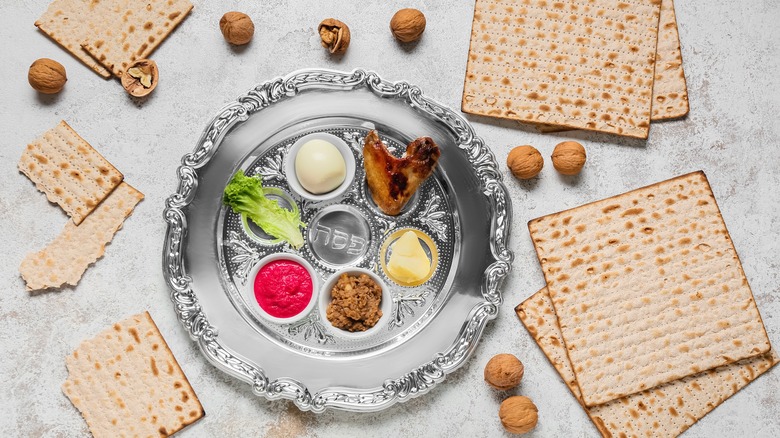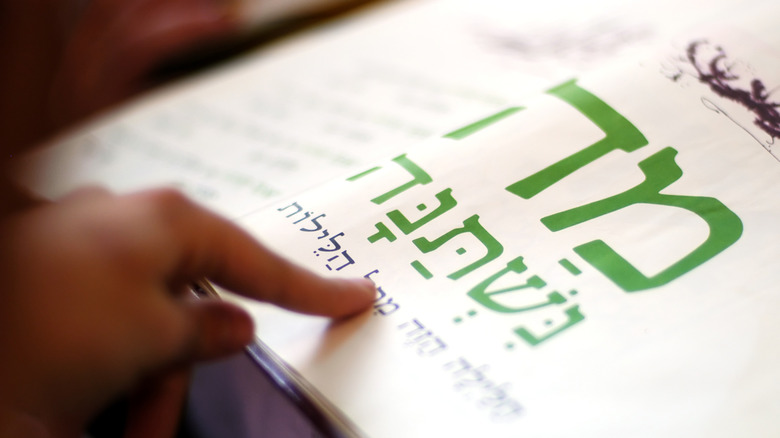Why Firstborn Sons Might Fast For Passover
Food is essential to every Jewish occasion, but Passover — which runs from April 15-23 — takes the flourless cake. Even Seders that leave out readings of the "Haggadah" will tell the story of the spring holiday that celebrates the Jewish people's escape from slavery in Egypt simply by the food around the Seder plate. There's the hard-boiled egg (beitzah) that, per Food & Wine, honors "the festival offering which was brought to the Holy Temple." There are the bitter herbs (maror) that represent the hardships of the Israelites, and there's the wine, apple, and walnut mixture (charoset) that symbolizes the bricks and mortar they built during slavery. There are the spring greens (karpas) dipped in saltwater to symbolize tears, the lamb shank (zeroah) that represents the animal sacrifice Jews brought to the Holy Temple, and the matzo that resembles the unleavened bread eaten by the Jews on their journey to Jerusalem.
The most important part of the Passover story, though, is the series of plagues that struck Egypt, per Time. First, water turned to blood. Then came a torrent of frogs, lice, and flies, followed by a devastation of livestock, an outbreak of boils, a hail storm, an infestation of locusts, a long stretch of darkness, and "the killing of firstborn children." That's where the name of the holiday comes in. Per the "Haggadah," God "passed over" the doors of Jewish slaves during the final plague, allowing them to flee. So, why do firstborn Jewish sons sometimes fast on the food-centric holiday?
Fasting is an act of gratitude
According to a Mental Floss roundup of Passover facts, firstborn sons may fast on the first night of the holiday to express gratitude for being spared during the final plague. The outlet cites chabad.org, which says that families with no children will observe the tradition by passing the fasting torch to the oldest member of the household, while families with a firstborn daughter instead of a son may spin the tradition to their liking.
Mental Floss also notes that the Torah-designated date of this fasting tradition, April 14, is actually a separate occasion called Pesach, which was eventually combined with the weeklong Holiday of Matzot (the holiday we now associate with Passover, which starts on the night of April 15) for simplicity's sake. It's lucky that this tradition only requires firstborns to fast for a single night, because it would be a shame for them to miss out on modern Passover classics like kugel and matzo ball soup.

